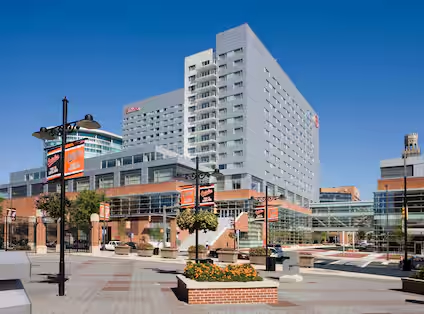
The Consumer Financial Protection Bureau (CFPB) has sued Comerica Bank for systematically failing its 3.4 million Direct Express cardholders - disabled and older Americans who receive Social Security and other federal benefits. The bank deliberately disconnected 24 million customer service calls, impeding cardholders from exercising their rights under the law, charged illegal ATM fees to over 1 million cardholders, and mishandled fraud complaints while providing federal benefits through the Direct Express prepaid debit card program. The CFPB is asking the court to order Comerica to stop these practices, provide refunds to affected customers, and pay civil penalties to the CFPB's victim relief fund.
Comerica Bank is a subsidiary of Comerica Inc. (NYSE: CMA), among the 25 largest bank holding companies in the U.S. Incorporated in Delaware, it is headquartered in Texas. Comerica reported total assets of more than $84 billion and total deposits of over $71 billion. Since 2008, the U.S. Department of Treasury has contracted with Comerica Bank to administer the Direct Express program, in which 3.4 million federal beneficiaries receive their monthly benefits payments through prepaid debit cards. Direct Express is a prepaid card that beneficiaries can use to pay for groceries, gas, and other expenses.
Comerica is in charge of customer service for the millions of Americans using Direct Express, many of whom are unbanked. Rather than ensuring that there was sufficient customer service to handle calls from the benefits recipients, Comerica instead boosted its bottom line. When people had problems with their accounts, it was often impossible to talk to someone for help.
The CFPB’s investigation found that Comerica failed to ensure sufficient staff and even intentionally disconnected more than 24 million calls. The CFPB alleges that Comerica harmed its customers by:
- Deliberately disconnecting customer service calls: Comerica’s vendors intentionally dropped over 24 million calls from customers before they could reach a representative. Customers whose calls were not dropped were routinely forced to endure excessively long wait times - often more than several hours - to speak with a representative to get help with unauthorized transactions, charge disputes, and lost or stolen cards.
- Charging consumers illegal ATM fees: Over one million Direct Express cardholders were charged ATM fees to access their government benefits in situations where they were legally entitled to free withdrawals.
- Misleading fraud victims: When consumers contacted Comerica alleging they had been fraudulently enrolled into the Direct Express program, the bank’s vendors frequently advised the consumers that “no error occurred” although the bank had determined that there was, in fact, enrollment fraud.
- Imposing illegal terms of service on consumers seeking to stop payments: Comerica led its consumers to agree to waive their consumer protections by requiring cardholders to contact and request merchants to stop pre-authorized payment transfers from their account in situations where the law in fact required the bank to stop the transfers itself.
- Failing to investigate account problems: Under federal law, when a customer notifies a bank about an incorrect or potentially fraudulent charge on their account, the bank must take steps to investigate the error within a specified time period. The CFPB’s investigation found that Comerica failed to meet this requirement more than 20,000 times. When they did investigate, they frequently provided vague and confusing findings or blew off customers altogether.
- Forcing consumers to close accounts, which often resulted in additional fees: The bank’s vendors required thousands of cardholders to close their accounts to stop a preauthorized payment, resulting in consumers incurring additional fees to expedite receipt of their new debit cards to regain access to their government benefits.
Under the Consumer Financial Protection Act, the CFPB has the authority to take action against institutions violating consumer financial protection laws, including engaging in unfair, deceptive, or abusive acts and practices. The CFPB’s lawsuit seeks to stop Comerica’s unlawful conduct, to provide redress for harmed borrowers, and the imposition of a civil money penalty, which would be paid into the CFPB’s victims relief fund. Read today’s complaint.
Consumers can submit complaints about financial products and services by visiting the CFPB’s website or by calling (855) 411-CFPB (2372).
Employees who believe their company has violated federal consumer financial protection laws are encouraged to send information about what they know to whistleblower@cfpb.gov. To learn more about reporting potential industry misconduct, visit the CFPB’s website.
The Consumer Financial Protection Bureau is a 21st century agency that implements and enforces Federal consumer financial law and ensures that markets for consumer financial products are fair, transparent, and competitive. For more information, visit www.consumerfinance.gov.
Read the December 6, 2024 CFPB article.







